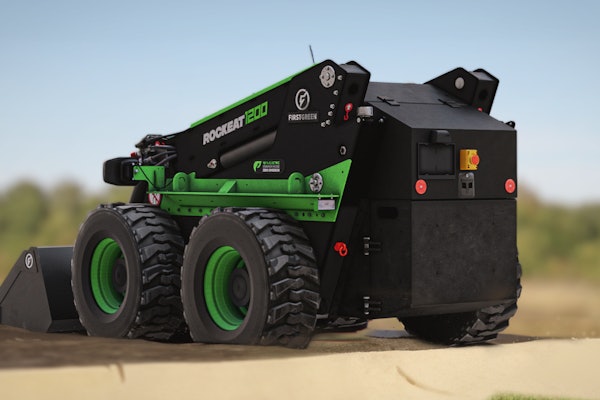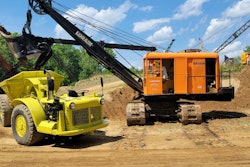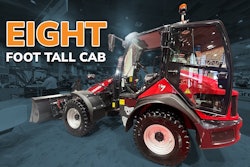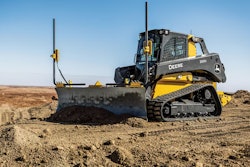You have a job that could be done with hand labor but to save time and backs you’re considering renting a backhoe loader for the project. Compact backhoes are available from 16 to 45 horsepower, and excel in jobs that do not require heavy lift capacity or deep excavation. (A full size backhoe’s dig depth typically is 14 to 16 feet. A compact backhoe will dig 8 to 10 feet.) These backhoes work well in confined areas and on jobsites with limited access, overhead utilities and sensitive landscaping. Lighter weight compact backhoes can also excel in tricky turf areas that can’t withstand the weight of a larger machine.
Tell the rental store what you want to accomplish. A good rental rep will take the time to discuss your job’s details and suggest the size backhoe that best fits your job. Equipment specs to consider include:
- Maximum backhoe loading height – check that the backhoe has enough lift height to load your truck or trailer.
- Lift capacity weight – coordinate the weight of your material with the machine’s hoisting capacity.
- Backhoe digging depth – how deep do you need to dig?
- Backhoe reach from swing post – In a pinch? A longer reach allows for fewer passes and access to difficult areas.
- Remember a four-wheel drive backhoe will give you better traction on gravel or mud.
- Check the stabilizer shoes. If you are working on asphalt, look for stabilizer legs that have rubber-padded shoes. Grouser shoes will provide a firm grip on dirt.
- Four-wheel steering will improve maneuverability in tight spaces.
- Know the type of machine controls your operator prefers. Ask the store if operator training is available.
- Consider renting a backhoe with a quick coupler or an integrated tool carrier.
Next, determine how you will get the backhoe to your site. Some compact backhoes are light enough to be towed with a half-ton pickup with a Class 2 hitch. “Delivery charges vary by location. We charge a flat rate but other regions charge by the mile,” says Doug Davidson, manager of Sunbelt Rentals in Gresham, Oregon. “Our store delivers about 60 percent of our machines. Larger locations will do up to 90 percent delivery.” If you need the backhoe delivered, schedule delivery when your operator is available to take responsibility for the equipment.
Weigh the equipment rental costs to the shop’s customer service options. A rental company with 24-hour repair service and customer support may run a few dollars more than a less expensive store with limited emergency assistance.
Match the backhoe’s abilities with your crew’s capability. Compact backhoes can replace hand labor and are easier to handle than other equipment, but they are powerful performance machines. “Pay attention to the product knowledge training offered from the rental company,” says Jim Summers, director of Home Depot Tool Rental Centers. “Carefully read all accompanying operation guides and safety tip sheets provided.”
Keep in mind that safety instructions are not the same as operator training. Look for rental companies that offer operator training programs, if your operators are relatively inexperienced.
Doug Dahlgren of Allmand Bros. also stresses safety. “We always recommend reviewing the operator’s manual, especially sections providing all the safety warnings in the operation of machine.”
Before you sign the rental agreement, discuss liabilities. Check your insurance. Most insurance polices only pay for the used market value of equipment. (Consider buying a rental protection program to protect your company should the compact backhoe get damaged or stolen.) United Rentals, for example, offers customers a rental protection plan that covers accidental damage to the equipment, theft, damage during transportation and vehicle accidents.
And remember to call before you dig. To get toll-free numbers for the “one-call” centers in your area, call the national “one-call” referral center at (888) 258-0808.









